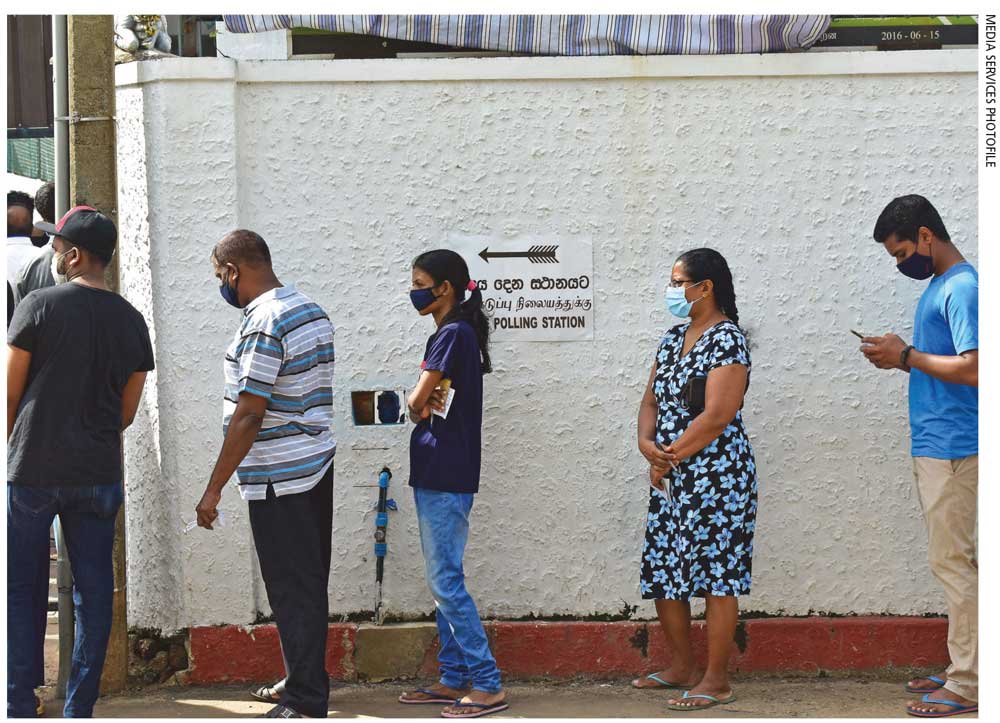SRI LANKA TODAY

THE GOVERNMENT VS THE PEOPLE?
The democratic rights of Sri Lankans are being ignored – Dr. Jehan Perera

There is a time frame beyond which those in power may not remain except with the consent of the people. The challenge is to win the trust of the general population to engage in reforms that will last the test of time.
But winning the trust and confidence of the people through the democratic process doesn’t seem to be the government’s priority at the present time. President Ranil Wickremesinghe’s appointment of a commission of inquiry to investigate existing election laws and regulations, and recommend changes, came without prior discussion or warning.
This latest commission – which was a carefully kept secret – was brought to the notice of the general public only when he appointed it. The commission has been tasked with examining all existing election laws and regulations, and making recommendations to suit current needs.
According to its terms of reference, the factors to which special consideration should be given include increased women and youth representation, introduction of electronic voting using modern technology instead of printed ballot papers and providing facilities for voting by Sri Lankans living overseas.
These recommendations are commendable but the timing gives cause for concern.
The proposed changes are far reaching. With the commission given time until April 2024 to come up with its recommendations, elections are unlikely to be held in the next six months.
Former chairman of the Election Commission Mahinda Deshapriya is reported to have said that it will be very difficult for the commission to complete its task in six months because it will take time and could go on for even a year.
Soon after Sri Lanka reached a staff level agreement with the IMF for the second tranche under the Extended Fund Facility (EFF), Wickremesinghe addressed concerns in sections of the population that the government is planning to stay in power without conducting elections in the foreseeable future.
This is the line of reasoning that some business leaders and economic planners are using to urge society to accept the need to consolidate the economic improvements they see. They say that continuity is in the national interest.
The grim reality for the majority of people is that their living standards are deteriorating as evidenced by World Bank data regarding the rise in poverty levels to 25 percent this year and 28 percent next year, and the WHO revealing a rise in malnutrition. Public opinion polls display the writing on the wall – they suggest that the government has been consistently garnering less than 20 percent of popular support.
Addressing the United National Party’s (UNP) national convention as its party leader, Wickremesinghe said that the presidential election is scheduled for 2024 followed by parliamentary elections.
However, his declaration that local government elections are expected to take place only in the first half of 2025 needs to be reconsidered given that they should have been held in March and not two years into the future.
Not even a president has the right to unilaterally postpone or cancel elections. Therefore, the government’s plan to change the electoral system at the present time is unlikely to materialise.
The proposed new system is detrimental to the election of ethnic and religious minorities who will not wish to support it.
It also evokes the nightmare possibility of a replay of the fiasco that led to the provincial council elections, which were scheduled to be held in 2017, being indefinitely postponed till the present day.
Shortly before those elections were to be held, the government proposed the introduction of some positive reforms to the election law including bringing in a quota for women. But once the prevailing law under which elections to the provincial councils had been repealed, the government failed to enact the reformed law.
This has led to the provincial councils being in a state of limbo ever since.
A similar situation arising in the case of parliament would be a disaster for democracy as it would not have an elected president, a parliament, provincial councils nor local government authorities.
Instead, it will have government leaders with expired mandates who will care more about retaining their power, perks and perhaps ill-gotten gains than in the wellbeing of the people they have grown distant from.





Leave a comment